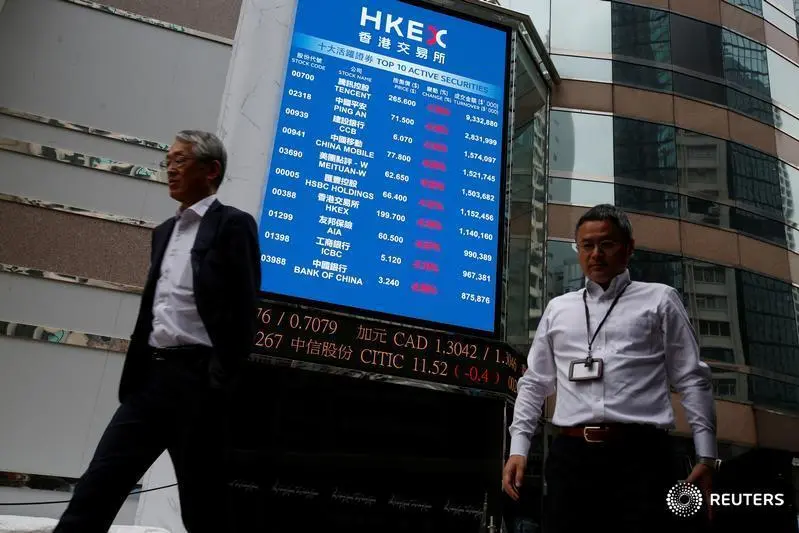PHOTO
HONG KONG - Hong Kong’s main stock tracker is getting an overdue makeover. The Hang Seng index compiler rewrote its rules to welcome companies with secondary listings and dual-class shares. That opens the door to Alibaba and others. It will help diversify baskets overstuffed with financial institutions, but also underscores the local bourse’s plight to attract more startups.
The benchmark, started in 1969, has struggled lately to keep up with the times. In 1992, it added state-owned CITIC, its first mainland Chinese company. Such tickers now account for over half the $2.1 trillion of market value represented. Index restrictions, however, have lagged relaxed listing standards at the Hong Kong stock exchange and kept the blue-chip tracker from properly reflecting the new, tech economy.
Although $535 billion Tencent is the Hang Seng’s biggest constituent, it’s joined in the top 10 by seven financial behemoths, including China Construction Bank and HSBC. Excluded from consideration, until this week’s changes, have been food-delivery company Meituan Dianping and smartphone maker Xiaomi. E-commerce titan Alibaba, which recently raised $13 billion in a Hong Kong secondary listing, the city’s biggest share sale in a decade, also would not have been eligible.
Concentration risk is dangerous, but also not exclusive to Hong Kong. Earlier this year, just five tech companies – Alphabet, Amazon, Apple, Facebook and Microsoft – accounted for nearly a fifth of the market value of the S&P 500, which is supposed to be a broad representation of the U.S. economy. Financial stocks represent almost 48% of the Hang Seng Index, according to Morgan Stanley analysts, but that should fall to under 42% with the expected new additions.
A better balance will help HSI compete with diverse rivals such as MSCI China. That’s a welcome change for $26 billion of passive funds that Goldman Sachs estimates track Hang Seng indices, and could help lure new investors. It also puts additional pressure on Hong Kong to entice large stock issuers, many of which keep plumping for New York instead. China Renaissance analysts also identified some three dozen Chinese companies with American depositary receipts, including online retailers JD.com and Pinduoduo, that qualify for a secondary listing. Things at least seem to be on the right track.
CONTEXT NEWS
- Hong Kong’s Hang Seng Index said on May 18 that it changed its rules to, among other things, allow it to incorporate companies with secondary listings and those with weighted-voting rights.
- The move paves the way for e-commerce titan Alibaba, food-delivery company Meituan Dianping and smartphone maker Xiaomi to be incorporated into the 51-year old benchmark index.
- The decision was made following a consultation conducted in the first quarter of 2020. More than 90% of market participants voted in favour of the changes, HSI said in a statement.
- Each of the new constituents will be subject to a 5% weighting cap.
- The index compiler will implement the changes to the HSI and the Hang Seng China Enterprises Index starting from its August 2020 index review.
(Editing by Jeffrey Goldfarb and Sharon Lam) ((alec.macfarlane@thomsonreuters.com; Reuters Messaging: alec.macfarlane.thomsonreuters.com@reuters.net))





















